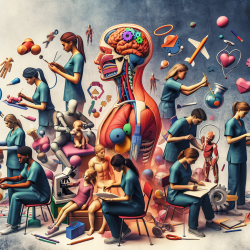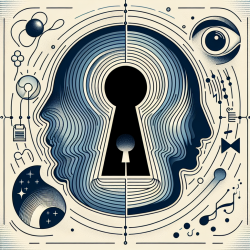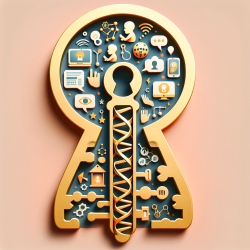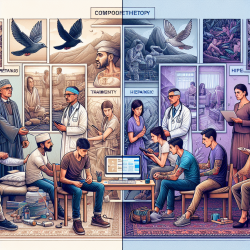Unlocking the Potential of Maker Education in Nursing: A Game Changer for Practitioners
In the ever-evolving landscape of education, the integration of innovative teaching methodologies is crucial for cultivating comprehensive skills in students. A recent study titled Effectiveness of a training program based on maker education for baccalaureate nursing students: A quasi-experimental study explores the transformative potential of maker education in nursing. This research provides valuable insights that can be leveraged by practitioners to enhance their teaching strategies and improve student outcomes.
What is Maker Education?
Maker education is an educational approach that emphasizes creativity, innovation, and hands-on learning. It is grounded in experiential education, project-based learning, and the DIY (Do It Yourself) and DIT (Do It Together) philosophies. The goal is to cultivate a creative personality in students, equipping them with the skills needed to tackle real-world challenges.
Key Findings of the Study
The study involved 40 nursing students who participated in a 12-week maker education program. The results were significant:
- Creativity: Students' creativity scores improved by 18.2%.
- Learning Interest: There was a notable increase in students' interest in learning, particularly in multidisciplinary knowledge.
- Cooperative Learning Skills: Students demonstrated enhanced ability to work collaboratively.
- Scientific Research Ability: There was a marked improvement in students' research skills.
- Information Attainment: Students became more adept at utilizing online resources for learning.
These improvements were statistically significant, indicating that maker education can effectively enhance various competencies in nursing students.
Implications for Practitioners
For practitioners in the field of education and therapy, integrating maker education into your practice can lead to substantial improvements in student outcomes. Here are some ways you can implement these findings:
- Incorporate Project-Based Learning: Design projects that encourage students to apply theoretical knowledge in practical settings.
- Foster Creativity: Use creative thinking exercises such as brainstorming and mind mapping to stimulate students' imagination.
- Promote Collaborative Learning: Create group activities that require students to work together to solve problems.
- Utilize Online Resources: Encourage students to engage with digital tools and resources to enhance their learning experience.
By adopting these strategies, practitioners can create a dynamic learning environment that not only enhances student engagement but also prepares them for the complexities of the modern world.
Encouraging Further Research
While this study provides compelling evidence of the benefits of maker education, there is still much to explore. Practitioners are encouraged to conduct further research to refine these educational strategies and adapt them to different disciplines and age groups. By contributing to the body of knowledge on maker education, you can play a pivotal role in shaping the future of education.
To read the original research paper, please follow this link: Effectiveness of a training program based on maker education for baccalaureate nursing students: A quasi-experimental study.










